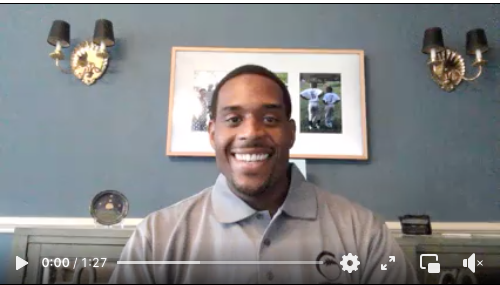The Greensboro City Council approved several additions and deletions to its code of ethics regarding elections at the Monday, Aug. 2 meeting.
The changes wouldn’t make much sense if an election were not an election year, but 2021 is an election year, just one where the election has been delayed to March 2022.
At a City Council meeting in January, Councilmember Marikay Abuzuaiter accused Councilmember Justin Outling of violating campaign laws by having the city issue a press release to promote his monthly community meeting “Java with Justin.” Abuzuaiter said that “Java with Justin” was hosted on Outling’s campaign Facebook page. Before the pandemic restrictions Outling held Java with Justin every month at the Dolce Aroma coffee shop on North Elm. Because of the pandemic restrictions, Outling moved Java with Justin to his personal Facebook page, not his campaign page, but Outling’s personal Facebook page does have “Outling for Mayor” banner.
The fact that “Outling for Mayor” appeared on Outling’s Facebook page was deemed not a violation, but it’s hard to see these changes to the code of ethics as not directed at Outling and his monthly community meeting.
The changes to the code of ethics include an addition to further define when a candidate may not use city resources. The relevant portion of the code of ethics states, “During such a blackout period, the use of any of the aforementioned city resources by a candidate for city council is prohibited unless such city resources are used, as established by clear and convincing evidence, in the performance of the official duties of a duly elected city council member.” The amendment added this phrase, “and without any mention or promotion by the council person of the coming election.”
And next sentence, “This applies to Town Hall Meetings as well” was eliminated from the code of ethics.
It is worth noting that Councilmember Goldie Wells holds regular town hall meetings with the assistance of several members of city staff. So under the amended code of ethics the restrictions would not apply to town hall meetings.
Other changes include adding “city personnel” to the list of city resources members of the City Council are not allowed to use for campaign purposes. The list already included:
“(1) city funds, which includes state and federal funds in possession of or designated for city use;
“(2) supplies;
“(3) media resources;
“(4) equipment, which includes, but is not limited to, computers and telephones;
“(5) real property, unless rented through the normal process;”
An amendment also further defines the city imposed “blackout period” during which the prohibitions apply. The blackout period goes into effect after a member of the City Council publicly announces their candidacy and an amendment defines “publicly announces” as, “An elected official is presumed to have publicly announced their candidacy’ by either making such a public announcement, or having their candidacy publicized in local newspapers and new outlets, or having their candidacy publicized on social media. That presumption can be rebutted if the elected official can provide evidence that the publication of their candidacy was not authorized and a retraction has been requested.”


What about the “Hatch Act”? Look it up.
The fox make rules for the hen house….
Upcoming elections are the last chance to fix this horrible mess.After that, Detroit;Chicago,Greensboro.
Suggesting that any of these communist have ‘ethics’ is laughable.